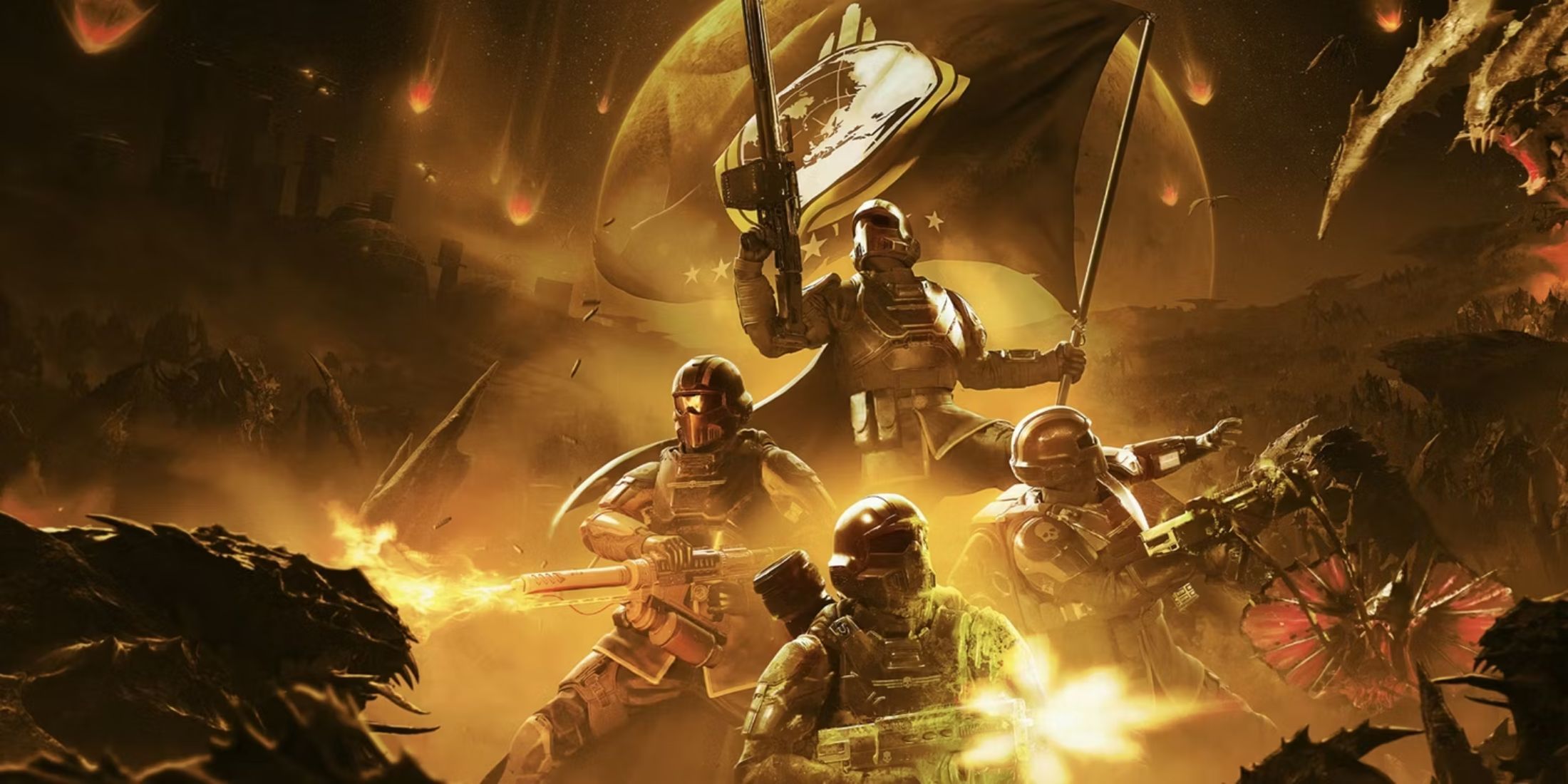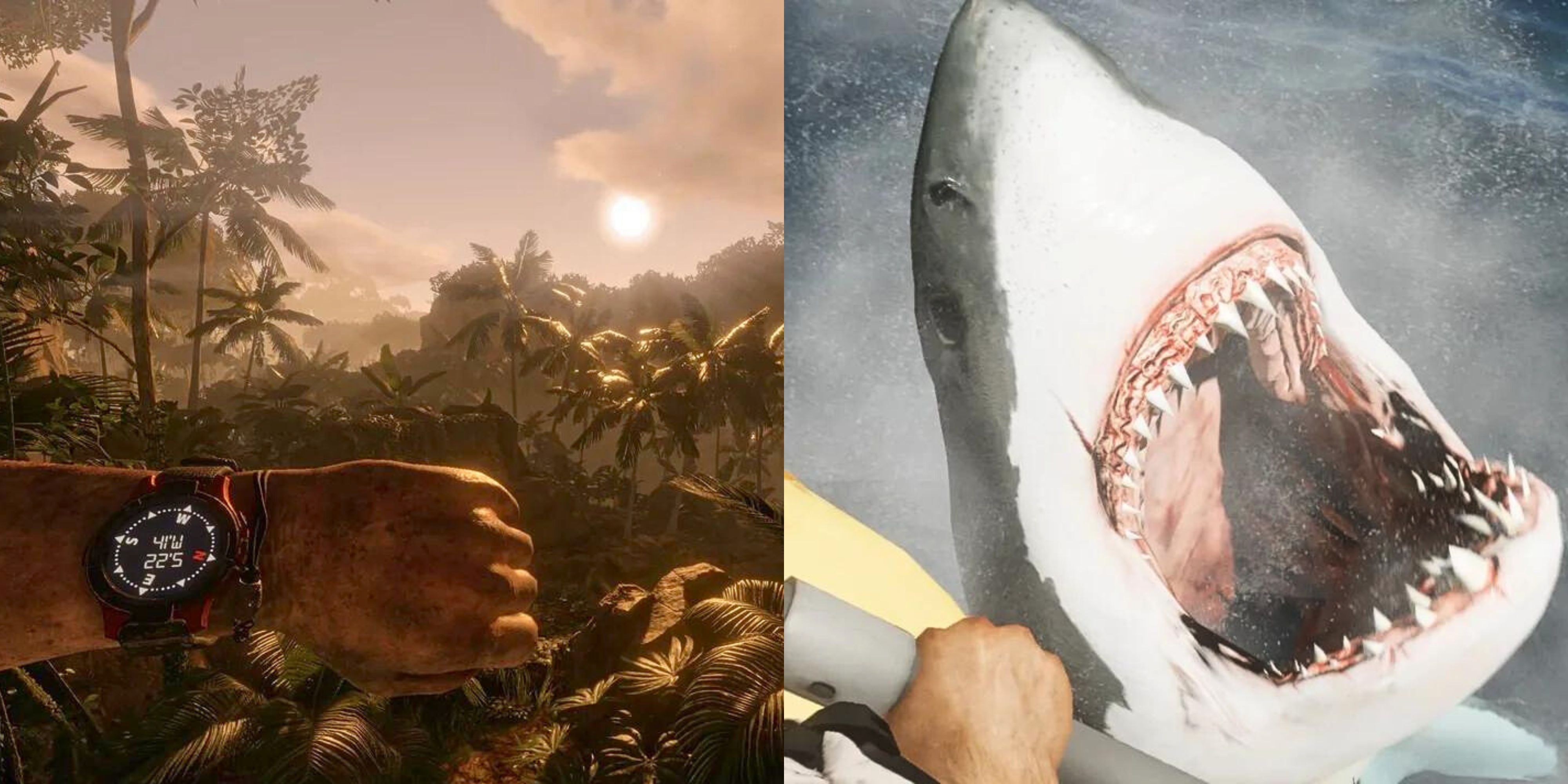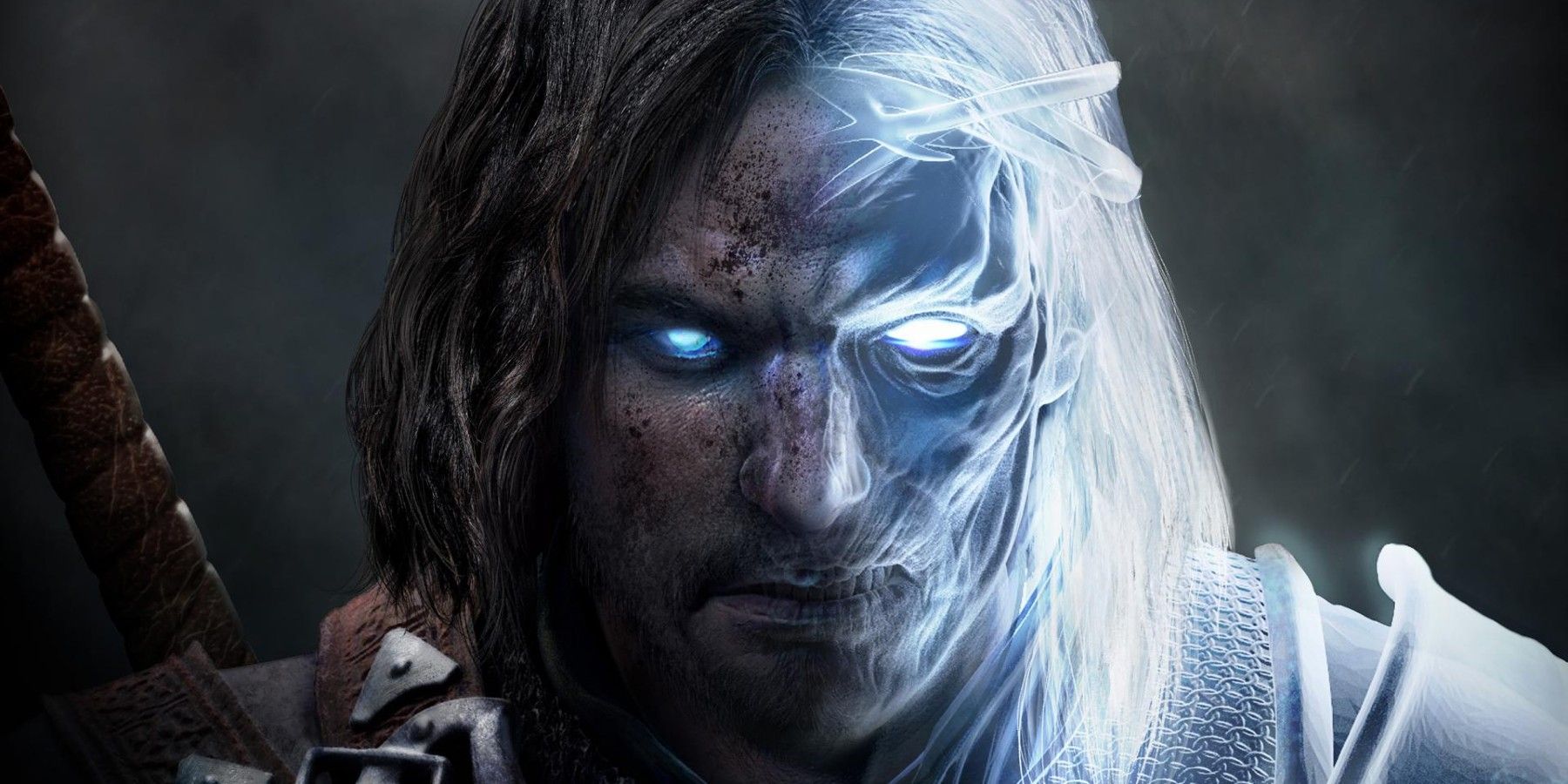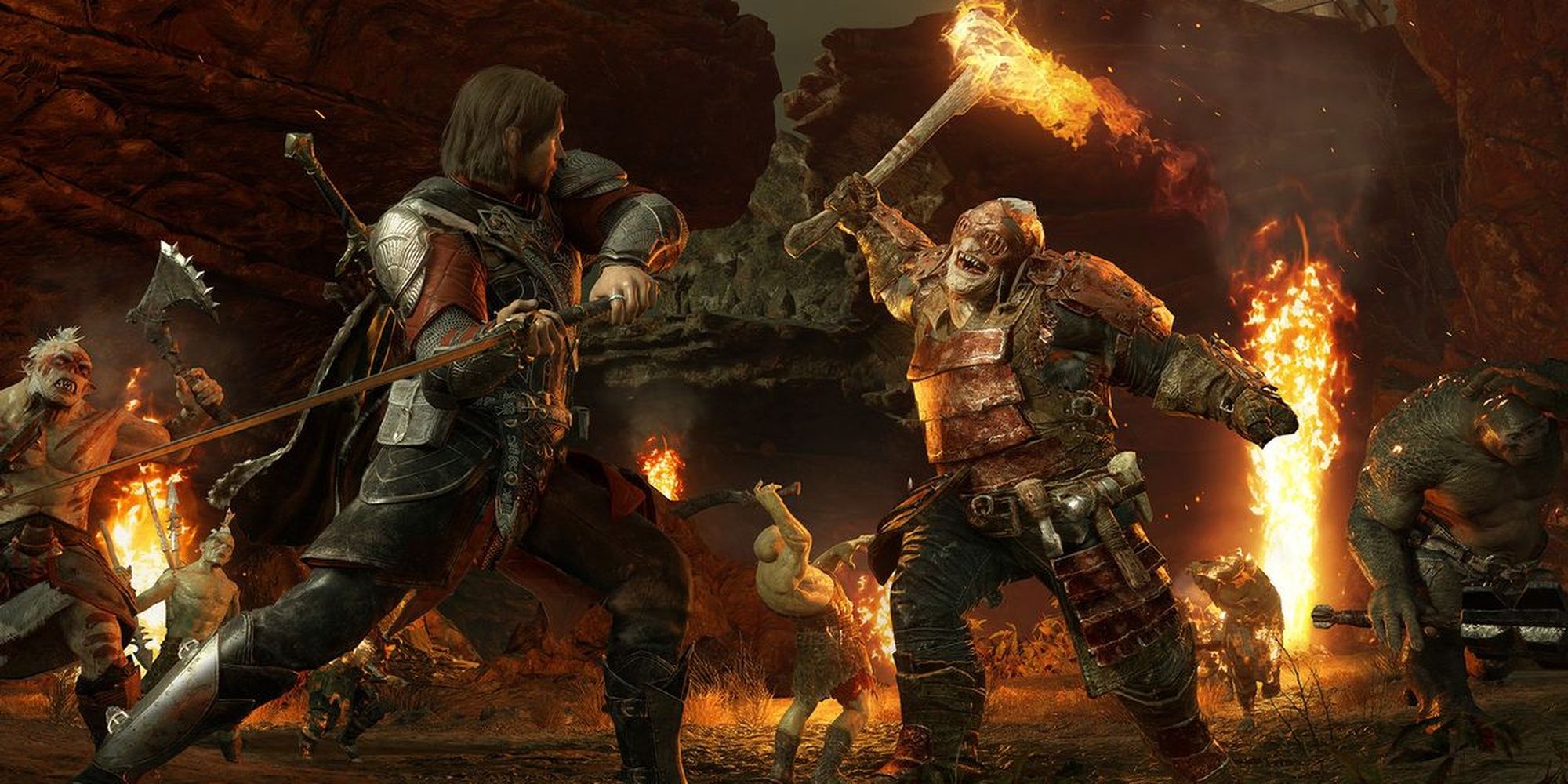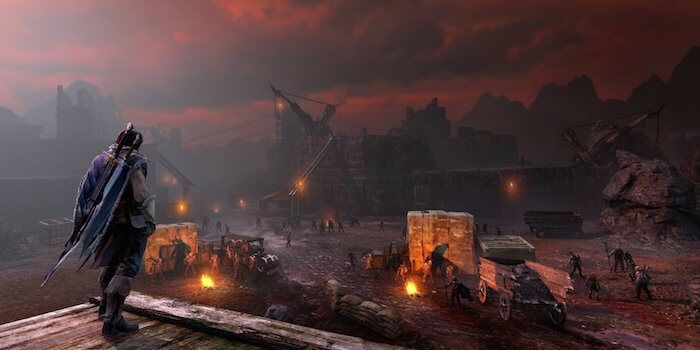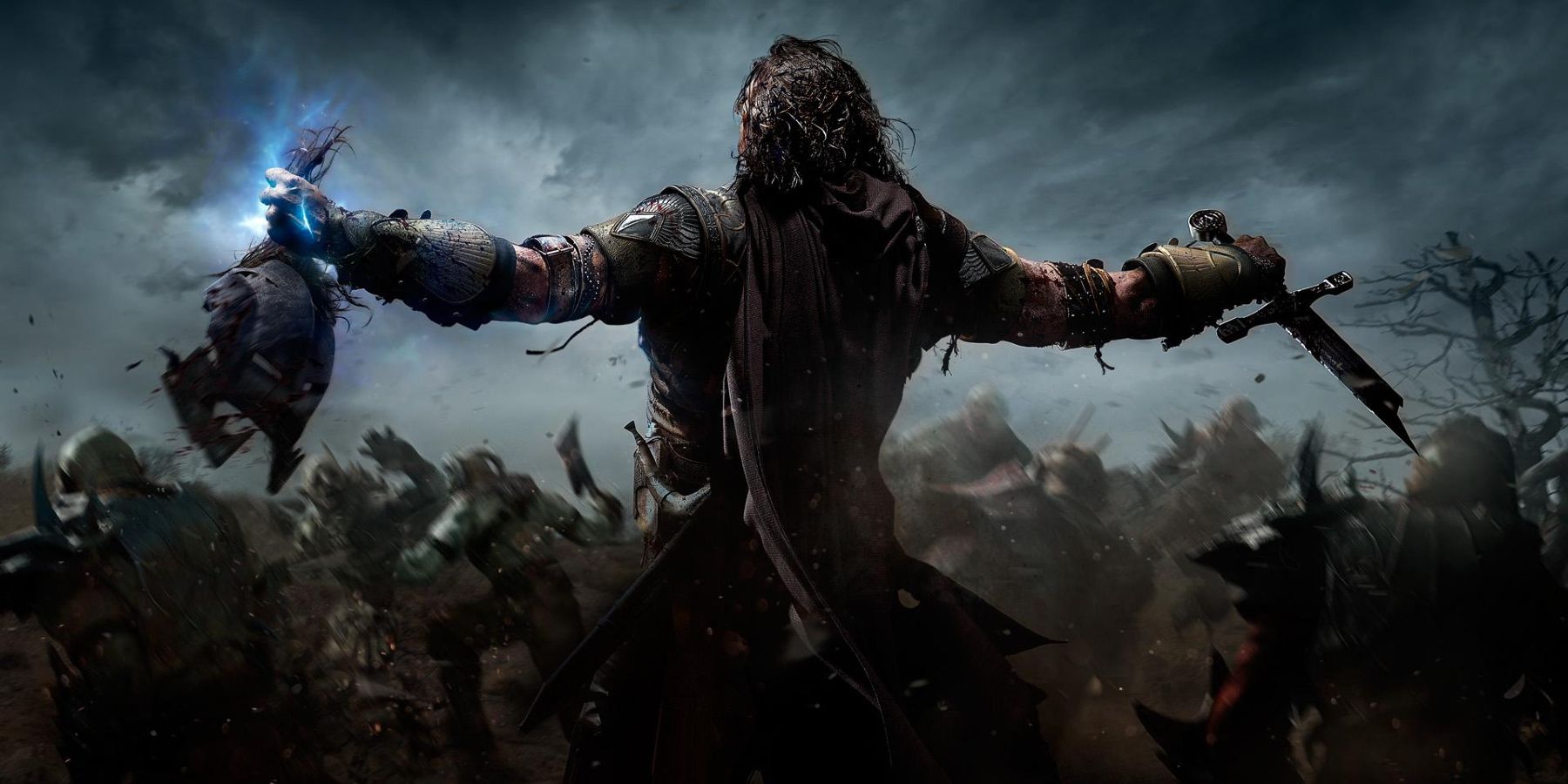Monolith Productions and Warner Bros. Interactive Entertainment's Middle-earth games helped to take Lord of the Rings in a new direction. There had been plenty of LotR games before, but Middle-earth: Shadow of Mordor and Middle-earth: Shadow of War introduced new characters, new regions, and an incredible new mechanic called the Nemesis System, which innovated NPC AI design. The games were praised for their distinctive characters and the direction of their stories, even if the events of both titles deviated from established LotR lore. Middle-earth: Shadow of War in particular also provided a fresh lens on canon characters that could potentially change LotR in fundamental ways.
While Shadow of Mordor and Shadow of War feature canon and non-canon characters, the stories of both games are original tales weaved around the known history of Middle-earth. Talion, the former Captain of the rangers of Gondor, is the protagonist at the heart of each of the games. His importance in not only the events of Shadow of Mordor and Shadow of War, but in the fate of the whole land as well, cements his status as an integral LotR character. He may technically be non-canon, but many fans feel that he deserves to be recognized as a canon character.
Interweaving Established Lord of the Rings Lore
With an intellectual property as vast as the world of Lord of the Rings, there is so much narrative depth and rich lore to dive into. Some players may only be familiar with Peter Jackson's film adaptations of J. R. R. Tolkien's work, or the original high fantasy novels they were based on, but there is a whole selection of posthumous work from the prolific author that added layer upon layer to the world he'd created; like The Silmarillion and The Children of Húrin.
Needless to say, Lord of the Rings games have a near-endless treasure trove of storytelling and worldbuilding they can dip into. Both of the Middle-earth titles chose to skirt around the edges of established LotR lore, featuring canon characters alongside new ones and adding context to historically significant events while also creating a few of their own.
Characters from the Lord of the Rings canon were peppered throughout both games, like the slippery ring-obsessed Gollum, the terrifying giant spider Shelob, and the skilled Elven master smith Celebrimbor. The latter is the most important to the story of the games, as the wraith accompanies Talion on his travels, granting him wraith-like abilities and helping him on his mission to first avenge his family and then overthrow Sauron. While these are canon characters, the games still present their own versions with slightly revised histories in some cases to add to their in-game narratives.
Another aspect of Lord of the Rings lore that Shadow of War brings to the forefront is the fate of Gondor's city of Minas Ithil. In both the books and the game, the city falls to enemy forces and is refortified as Minas Morgul — home to the Witch-king of Angmar and Lord of the Nazgul. While this isn't too prominent in the original tales, Shadow of War uses this event to fortify Talion's position as a key player in Middle-earth's fate.
Talion's Place In the Lord of the Rings Story
Set in the 60 years between The Hobbit and The Lord of the Rings, both Middle-earth games tread new ground in LotR storytelling, touching on events and featuring characters mentioned in the books. As the protagonist of both games, players see Talion undergo many trials in his attempts to avenge his family, and help those who also suffer as a result of the growing strength of Sauron and his allies. His struggles to focus on the greater good, as well as not sacrifice his basic humanity along the way or succumb to the calls of power, echo the trials of the Fellowship of the Ring and characters like Frodo.
As a Ranger of Gondor, Talion also holds a similar narrative space as characters like Boromir, Faramir, and Aragorn, and even has a similar look and feel to the latter's depiction in the popular Lord of the Rings films. Like these characters, Talion affects the events in LotR in major ways even with his smallest actions. This is especially true in Shadow of War when he takes up the defeated Isildur's ring, accepting its corrupting powers in order to stop Celebrimbor's plans of taking Sauron's place.
Talion's actions here have far-reaching consequences, and by successfully foiling Celebrimbor's victory, he prevents a tyrannical rule over all of Middle-earth. Most importantly, however, he provides Middle-earth with enough time to prepare for Sauron's inevitable war when he acts as the gatekeeper and jailor for the forces in Minas Morgul.
The Thorny Issue Of Canon Storytelling
The Middle-earth games provide some intriguing backstories for a few established characters, tweak some bits of lore, and fill in some narrative gaps. Most of the events in the games are not canon, but they do flirt with canon storytelling enough for them to feel plausibly part of the Lord of the Rings world. In the books, only two of the Nazgul are actually named — the Witch-king of Angmar and Khamul the Easterling. It's established that the nine men who were eventually corrupted by Sauron's rings were great lords, leaders, and warriors, and their number included three Numenoreans, but other than that they're essentially a blank slate.
Shadow of Mordor provides a rather heartbreaking origin story for one of them, and also establishes Aragorn's forefather Isildur as a Ringwraith as well. It's a twist to the tale that many fans approved of, and in lots of ways, it makes sense for Lord of the Rings canon. The stories are full of characters sacrificing themselves for the greater good, as well as explorations of how even good people can become corrupted by power. Despite his best efforts, Talion succumbed to the influence of his ring and eventually joined Sauron as one of his Nazgul, becoming one of the many tragic and self-sacrificing heroes in LotR.
There are some fairly extreme revisionist elements within the games, like Talion and Celebrimbor's creation of a new Ring of Power, or Shelob's inexplicable human form, but most of Talion's story fits fairly neatly into the narrative that's already been established within the books. Some may be purists at heart and not appreciate the re-contextualizing of the canon material, but Talion is a great character whose exploits and eventual fate add to the richness of the original story.
Middle-earth: Shadow of War is available now on PC, PS4, and Xbox One.

